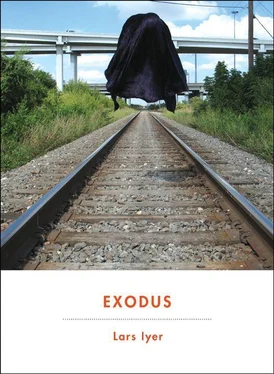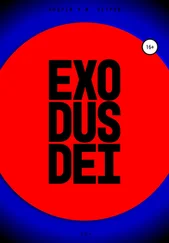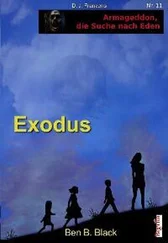How well-informed our Edinburgh friend (W.’s Edinburgh friend) is! How much he knows! He’s so much cleverer than us, we agree. Of course he’s cleverer than us! He’s more studious than we are — of course he is! He’s more of a scholar — of course! of course!
For how long has our Edinburgh friend (W.’s Edinburgh friend) been working on his Bergson book? For how long, having studied advanced mathematics in order to explore mathematical themes in Bergson, and having mastered mathematical German , in order to read the latest German papers on Bergson and mathematics?
And he’s more interdisciplinary than we are, our Edinburgh friend (W.’s Edinburgh friend). Hasn’t he patiently consulted his colleagues in science about the scientific aspects of his study of Bergson?
And he’s more cutting edge than we are; his work is of more contemporary relevance. For, his Bergson study is by no means a merely historical study, a matter of the history of ideas . Our Edinburgh friend (W.’s Edinburgh friend) is writing a study of Bergson for our times , showing how Bergson’s thought might be understood to be abreast of our times, if not ahead of them.
And our Edinburgh friend (W.’s Edinburgh friend) is more generous than we are, more thoughtful. Didn’t he take us out last night for the finest of whiskies? Didn’t he baulk at the idea that we would pay for our rounds of whiskey — didn’t he, indeed, insist that he would pay for every round, and even choose the whiskies for us?
And hadn’t he already bought the finest of wines for us, knowing we were coming, with our taste for wine? And the finest of cheeses, knowing of our enthusiasm for cheese? And hadn’t he readied himself with concerned questions about our lives and the trivialities of our lives, things that should concern no one, least of all a thinker such as he?
In the end, it was a terrible crime that a thinker like him, our Edinburgh friend (W.’s Edinburgh friend), should fill his head with such trivialities, instead of filling it with more materials relevant to his Bergson project. To his unfinished Bergson project, for it is unfinished, and has remained so for several years.
And how did we repay him? What did we do after we drank all his wine and ate all his cheese? What, after he listened so patiently to our woes? We buttoned his carefully folded shirts over our teeshirts; we rolled on his carefully hung trousers over our shorts and got under his neat, folded bedclothes. — ‘We’re thinkers!’, we cried, imitating his Edinburgh burr. ‘We’re men of ideas!’
‘What are you doing?’, said our Edinburgh friend (W.’s Edinburgh friend), aghast. — ‘We’re going to write a book on Bergson’, we said, in our approximation of his accent. ‘We’re going to write a study of Bergson for our times!’ We were completely giddy. — ‘What are you doing?’, our Edinburgh friend (W.’s Edinburgh friend) asked again and again. Didn’t we hear in his voice something of the betrayed trust of a solitary thinker? Didn’t we sense the solitariness that we had invaded? That we had defiled ?
We were in his sanctum. He’d shown us his chamber of thought, and the implements of his thinking. We’d seen his bookshelves, for God’s sake, which he revealed with the tender shyness of a virgin …
We’d seen his bookmarked volumes of Husserliana. We’d seen his complete editions of Reid and Hume, and his broken-spined Greg Batesons. We’d seen his threadbare Fractal Geometry of Nature , his Prigogine and Stengler. And we’d seen books on self-organising systems and catastrophe theory , on non-linear modelling and complex criticality .
He’d taken us (well, W. at least) to be fellow thinkers. He’d spoken to us (to W.) as peers, as thought-compatriots. He’d thought we (W.) were non-trivial men, serious men, men of ideas like him. He’d thought we (W.) were Hyperboreans , men of altitude and vision …
Oh God, how puerile we are! W. says. How delirious ! Why did we let our inanity sweep us away? Why do we destroy whole friendships (W.’s friendships) with our foolishness?
There was a time when W. thought there was a kind of freedom in our lightness. That buffoonery was a kind of liberation, a release from false gravity. At least we’re not pompous men: isn’t that what he said to himself?
But he knows now that there is no end to inanity, that it’s like sliding on ice, W. says. That there’s no friction, nothing to stop you … and that we’ve long since slid past each one of our friends (each one of W.’s friends).
The people we’ve disappointed! The friends we’ve estranged! W.’s full of remorse, he says. Full of guilt! — ‘Do you remember Nashville?’, he says. ‘Do you remember what we did to our Canadian hosts?’ We bickered in front of them, I remember. We argued. — ‘We did more than that’, W. says. ‘Do you remember the night we sang about cocks?’ Ah, cock song night ; of course.
Once again, we went too far, W. says. Our host had a guitar, he recalls. We were to sing together, to share the songs of our countries, our childhoods. We were to sing, as Canadians like to sing after dinner. For a Canadian, W. explained to me, it’s only natural to sing after dinner. To sing, and to listen to others sing, and perhaps to learn new songs, and perhaps to teach songs to others.
But what did we sing? W. says. What songs did we send floating up into the night? — ‘Songs about cocks’, W. says. ‘Our great cock songs’. We drowned the Canadians out in our excitement. We drowned them out in our hilarity.
We let ourselves down again, W. says. He let himself down. Wasn’t he supposed to be the sensible one in our party? Didn’t he feel himself personally responsible for our behaviour?
W. compares us to our Edinburgh friend (his Edinburgh friend): he gives, we take; he has ideas, we plagiarise; he engages with the real world, with contemporary ideas, contemporary science, while our engagement with the world is entirely mediated by books we half understand.
Our friend (W.’s friend) tries to change the world; we are utterly parasitical on people who try to change the world. He makes people feel funny and intelligent; we make people feel depressed and demotivated. Every day, for our Edinburgh friend (W.’s Edinburgh friend), something new might occur. Every day, for us, only confirms that nothing new will ever have occurred.
W. blames me, he says. I’ve infected him. I’ve given him some kind of disease. Some kind of cancer of the brain, W. says. Parts of his brain have turned to mush, he’s sure of it. If you cracked open his skull, it’d be full of cottage-cheese-like mush. I’ve curdled his brain , W. says. That’s why he’s become so inane. That’s why he’s losing his faculties one by one.
The faculty of reason — that went long ago. The faculty of politeness — oh, it’s going, he can feel it, W. says. The faculty of acumen — long gone. The faculty of non-stupidity — turned into mush. The faculty of wit — curdled. And now all that’s left of him is the non-faculty of inanity, and the anti-faculty of stupidity.
Edinburgh morning: it’s a song in our hearts, this city. Coming out from our hotel, we feel a great upsurge of tenderness. Opposite, spread before us, the Old Town rises up in layers. We tremble with love — don’t we feel lighter here in Scotland? Isn’t the air fresher, keener? And we have the whole day before us! We have time, the whole day, like an empty expanse.
Scotland always makes us forget, we agree. Scotland always gives us the gift of oblivion. Have we really forgotten the disaster of last night? Have we really put it behind us, the desecration of our friendship with our Edinburgh friend (W.’s Edinburgh friend)? We have. Selective forgetting: this is the secret, W. says. Voluntary amnesia. It’s what allows us to go on.
Читать дальше












